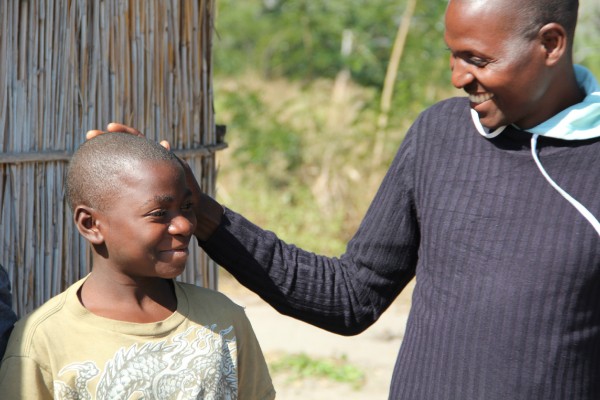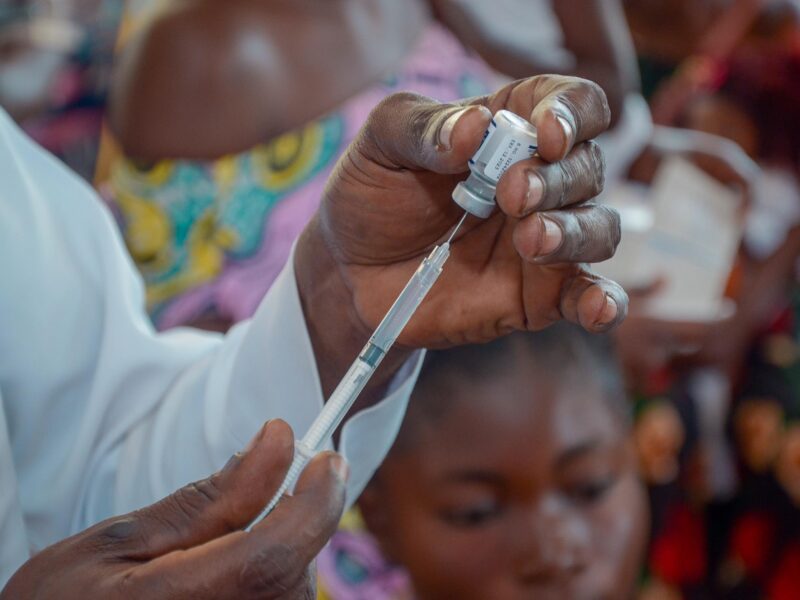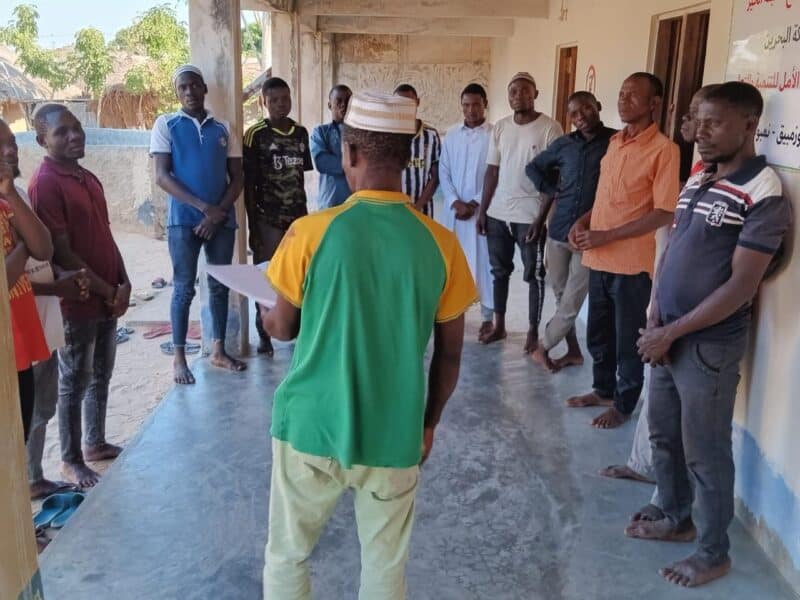Life for Cecilia Eduado Dete and her son, Mario, used to be very difficult. Her husband, Adelino Guambe, would drink heavily, stay away from home for days at a time and fight with her when he was around.
“I had to ask him [Adelino] for money to go to the market. I was not allowed to buy anything on my own,” Cecilia explains. “If I said anything to him, the fighting would begin. When Adelino had a lot to drink he would say he didn’t want anyone here at home. We had to run and ask our neighbors to hide us in their house, or we would go into the woods and spend the night in the bush.”
Things began to change for Cecilia, Mario and Adelino when they learned about Conversa de Homens (Conversations among Men), a program implemented under the PACTO (Active Prevention and Communication for All) project run by the Johns Hopkins Bloomberg School of Public Health Center for Communication Programs (JHU∙CCP) and funded by PEPFAR and USAID’s Gender Based Violence Initiative in Mozambique.
Conversa de Homens is an initiative that targets gender-based violence. It was started in August 2013. To date, it has reached over 2,700 men in Maputo and Gaza provinces. Through sessions and group discussions led by trained male facilitators, participants discuss the determinants of GBV, the link between HIV/AIDS and GBV, how to break the cycle of violence and where to find help and referral to GBV services.
Cecilia approached the facilitator of the local Conversa de Homens group to see if he would invite Adelino to participate. She explained, “I cannot say anything because I’m a woman and he [Adelino] will not listen to me. It will just start another fight here at home, but for you [the facilitator], as a man, it would be worth a try to go talk to him and see if he will go to the Program, since life is already very hard here.”
At the urging of the facilitator, Adelino began attending Conversa de Homens; the change was immediate.
Adelino says that before Conversa de Homens, could not accomplish anything. Everything he earned was spent on drink, and he paid no attention either to his child or to his wife.
“I learned from other men that the way I was living was not good,” said Adelino about his experience in Conversa de Homens. “I felt alone. I saw that I was living a life of my own that did not help anyone. I learned that there are many things a man can do at home and still be a man.”
“There are no more fights here at home. He no longer drinks the way he used to. When I ask him for anything for the house, he doesn’t refuse. We talk about everything here at home,” Cecilia describes enthusiastically.
Life has changed for Mario as well. “I was very afraid because Papa used to beat me a lot,” he explains. “Today he treats me well; he doesn’t beat me anymore, so I want to stay at home with him.”
Perhaps the most important change for Adelino was recognizing the role he plays in his son’s life.
“My son now wants to live with me,” Adelino expresses with great pride. “If he has a problem at school, I help him resolve it–something I didn’t do before. Now I recognize that I have a boy that I have to take care of here at home. I do everything to get closer to him and let him know that “Papa likes me.” I learned that I have a duty to care for him and have him close to me so that when he grows up he will be able to recognize me as a father. It is important for a father to take care of his son, and for a son to know his father and know that he is his family.”




